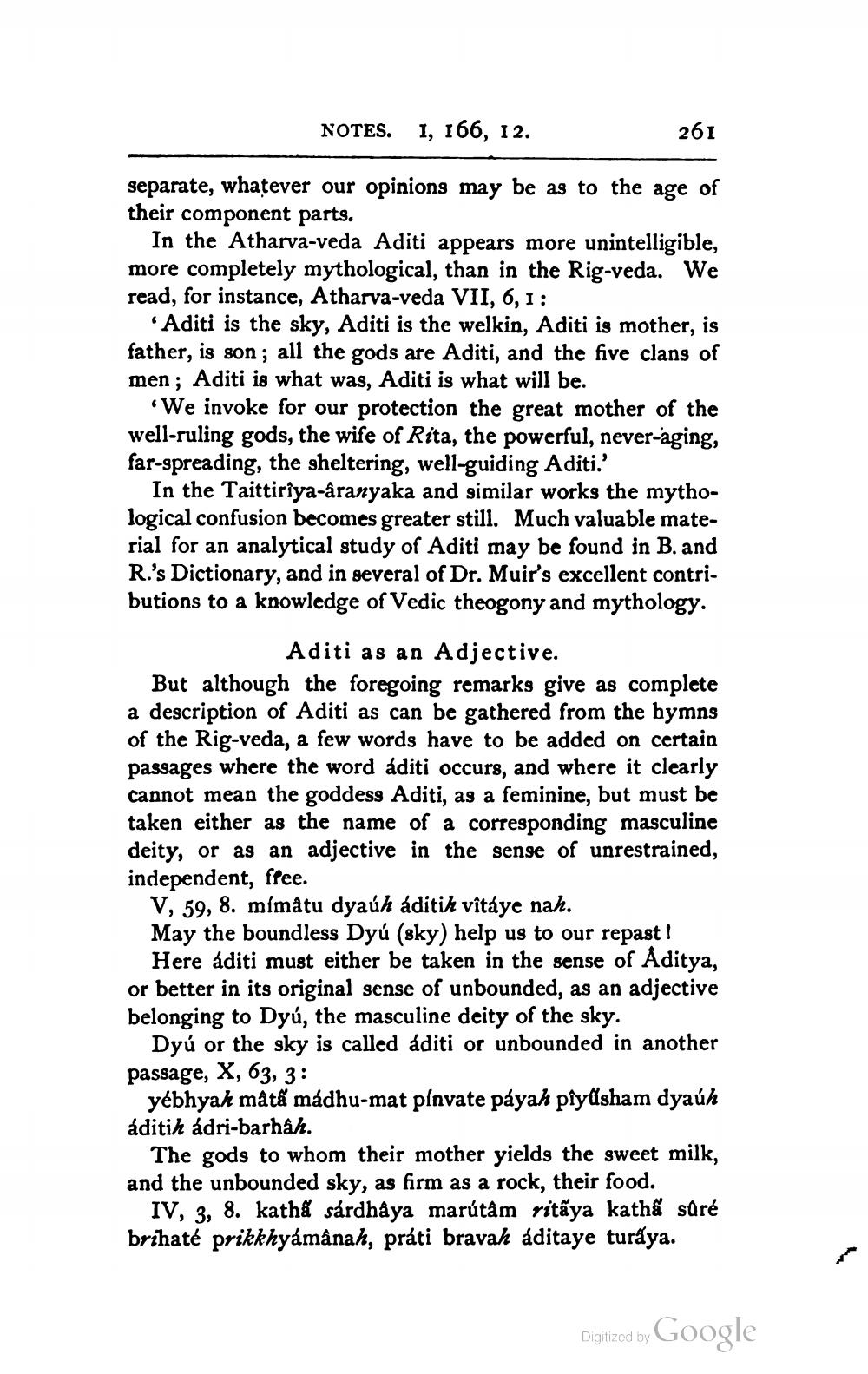________________
NOTES. 1, 166, 12.
261
separate, whatever our opinions may be as to the age of their component parts.
In the Atharva-veda Aditi appears more unintelligible, more completely mythological, than in the Rig-veda. We read, for instance, Atharva-veda VII, 6, 1:
Aditi is the sky, Aditi is the welkin, Aditi is mother, is father, is son; all the gods are Aditi, and the five clans of men; Aditi is what was, Aditi is what will be.
We invoke for our protection the great mother of the well-ruling gods, the wife of Rita, the powerful, never-aging, far-spreading, the sheltering, well-guiding Aditi.'
In the Taittiriya-aranyaka and similar works the mythological confusion becomes greater still. Much valuable material for an analytical study of Aditi may be found in B. and R.'s Dictionary, and in several of Dr. Muir's excellent contributions to a knowledge of Vedic theogony and mythology.
Aditi as an Adjective. But although the foregoing remarks give as complete a description of Aditi as can be gathered from the hymns of the Rig-veda, a few words have to be added on certain passages where the word áditi occurs, and where it clearly cannot mean the goddess Aditi, as a feminine, but must be taken either as the name of a corresponding masculine deity, or as an adjective in the sense of unrestrained, independent, free.
V, 59, 8. mimatu dyaúh aditih vitáye nah. May the boundless Dyú (sky) help us to our repast !
Here áditi must either be taken in the sense of Aditya, or better in its original sense of unbounded, as an adjective belonging to Dyú, the masculine deity of the sky.
Dyú or the sky is called áditi or unbounded in another passage, X, 63, 3:
yébhyah mata madhu-mat pinvate payah piyusham dyaúh áditih adri-barhâh.
The gods to whom their mother yields the sweet milk, and the unbounded sky, as firm as a rock, their food.
IV, 3, 8. katha sárdhảya marútâm ritãya katha saré brihaté prikkhyámânah, práti bravah aditaye turáya.
Digitized by
Digitized by Google




